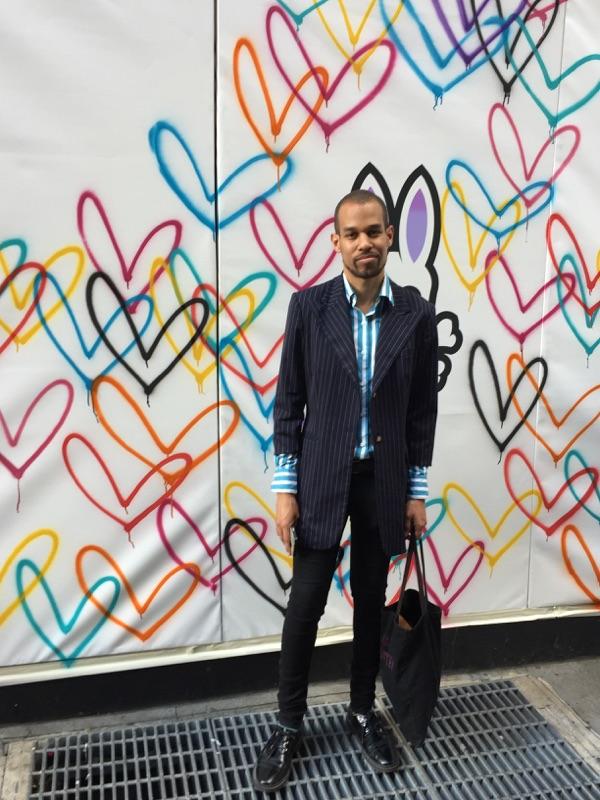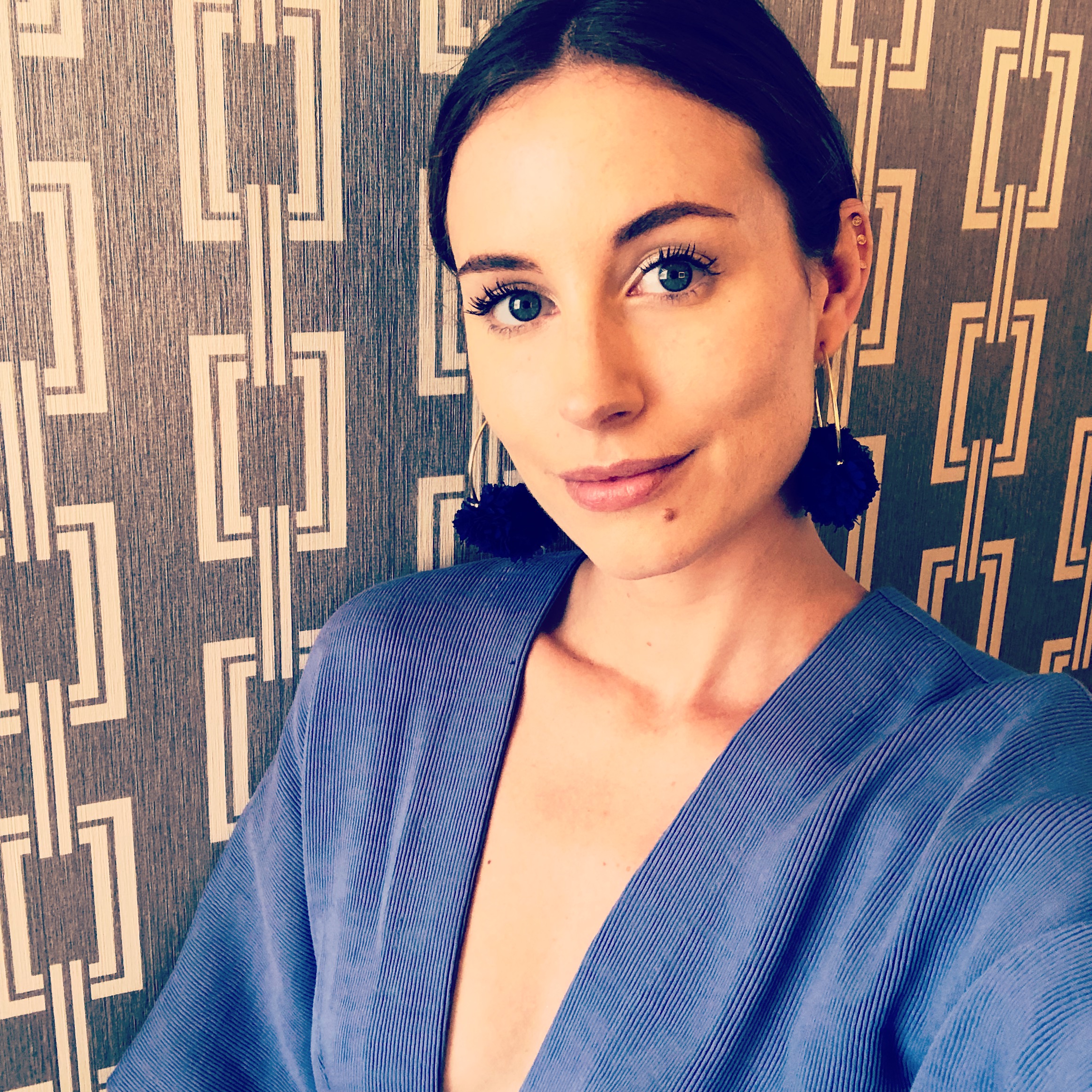Fashion journalism graduates share their experiences forging their own paths in the industry, with emphasis on the importance of staying flexible in changing times
By Nina Tabios
Academy of Art University equips its fashion journalism students with a core foundation for storytelling: writing, reporting, and critical thinking. Fashion specifically requires a wide scope of industry foundations, standards, intel, and know-how. On top of the skills acquired in the A.A., B.A. and M.A. programs (including social media and digital content creation), journalists from the School of Fashion are exposed to design, styling, merchandising, and marketing, just to get a taste of the multi-faceted market awaiting them.
Academy Art U News spoke with a few fashion journalism alumni from the Academy on how they’ve been able to adapt their skills and education to an industry transformed by technology, social media, and other digitally-driven developments.
Malcolm Thomas
As traditional newsrooms shrink, journalists like Malcolm Thomas are forced to go freelance. In cities like New York, the gig economy is abundant, but you need drive, ambition, but especially the right connections.

B.F.A. fashion journalism alumnus Malcolm Thomas. Photo courtesy of Malcolm Thomas.
“Who you know is currency here,” said the 2015 B.F.A. graduate, who primarily works as a contributing editor covering menswear for publications F–king Young! and Le Mile. “If you’re not very well connected, not on a one-on-one basis with the PR showrooms and agencies, and designers on a personal level, you’re just out there kind of lost.”
Thomas’ journalism career had to shapeshift along with the industry itself. Since completing his education, Thomas has “literally done everything.” Looking back now, the early exposure to all fashion disciplines at the Academy foreshadowed what was to come in his near future: assisting stylists, learning buying and wholesale in Rick Owens’ showroom, and writing e-commerce copy.
First and foremost, as a journalist, Thomas wants to always “be part of the next great fashion conversation.” With Le Mile, Thomas covers Paris Fashion Week twice a year and interviews industry figureheads such as Pyer Moss designer Kerby Jean-Raymond and style icon Erykah Badu. Thomas will always be a wordsmith, but he’s constantly adapting and adjusting to the fashion world and all its mutual inhabitants, many of whom Thomas met at the Academy.
“Be open to more, learn as much as possible, study the market,” he advised. “I think what’s really good about the Academy is you meet people from all over the world, from all walks of life. That’s literally what fashion is anyway. You are being exposed to a lot—in terms of people and culture from all over the world—and that’s a great starting point.”
Read Malcolm Thomas’ work at www.malcolmthomas.us.
Katarzyna Tarabula
Everything you read while shopping on a website—product descriptions, sale banners, marketing assets, social media, even email newsletters—that is all the work of copywriters like Katarzyna “Kate” Tarabula.

Fashion journalism graduate Katarzyna Tarabula. Photo courtesy of Katarzyna Tarabula.
Now a Content and Copy Lead for Mytheresa, a global luxury e-commerce company headquartered in Munich, Tarabula originally got her e-commerce start at the now-shuttered Try.com, where shoppers could ‘test-drive’ clothes from brands like Nike and Zara. On top of being a personal shopper, Tarabula created marketing content, connected with clients, and maintained communication with retailers and couriers.
“I didn’t really think about working in e-commerce until I got to Try.com and I really liked it,” the 2015 fashion journalism graduate said. “I thought it was very challenging, because writing short, in my opinion, is more difficult. I wanted to learn how to master that, how to write something really catchy but, at the same time, have all the information there.”
For Mytheresa, Tarabula oversees a team of 15 copywriters and reviews all of the copy English-reading customers see online. Because Mytheresa is a worldwide retailer, her team’s campaigns must be on-the-nose and up-to-speed on the industry as well as aligning various brand voices with Mytheresa’s own DNA. “Off-White would be very different than Prada. We have to communicate it completely differently,” Tarabula said.
Tarabula understands that e-commerce isn’t for everyone. But she believes that if students can combine their writing skills with aspects of advertising or commerce, that places a new perspective on where and how communications skills can be applied and sought after in an ever-changing market.
“What really helped me was to try different things, being open to social, blogging, even things like influencer marketing,” Tarabula said. “I didn’t know that much about e-commerce but it started as an interesting internship, at first, then it became really my passion.”
Faye Harris
Influencer marketing modernized the intersection of marketing and press relations with the inclusion of social media, especially Instagram. When fashion and beauty influencer Laila Loves posts a picture with a Too Faced Cosmetics mascara on her profile page, she is promoting the brand to her one million followers.

M.A. fashion journalism alumna Faye Harris. Photo courtesy of Faye Harris.
These types of brand-influencer relationships are forged by people like Faye Harris, the social media and influencer marketing manager for Too Faced Cosmetics. Social media and marketing, according to Harris, encompasses the entirety of her education and work experience. The 2016 M.A. fashion journalism graduate started out a devoted writer for Fashion School Daily and her own Tumblr blog, and even as she branched out into other PR and social media internships at beauty and fashion magazines, she “tried to integrate writing into every job I had.”
By 2016, Harris was creating diverse sets of content. With Juice Beauty, she was doing video production, storyboarding, planning and directing for launch campaigns, social media, and web for more traditional marketing campaigns. Influencer marketing adds a whole different level to how brands reach their consumers and maintain these types of partnerships.
“In a lot of ways, I feel that influencer marketing is similar to traditional PR, and marketing, in general. [It] has a lot to do with storytelling,” Harris said. “Even knowing how to interview has enabled me to network more fluidly with influencers and build long-lasting and genuine relationships for the brand. Working on sponsored content and campaign briefs, for example, pulls similarities from publishing and building my own magazine at the Academy.”
Today, Harris said digital and social is where it’s at for jobs needing writers and other types of creative critical thinkers.
“As long as you keep an open mind and stay interested in the industry as a whole, then it all helps,” Harris said. “Luckily the digital space continues to be shaped and molded by social users, so you will always have the ability to create your own footprint within it.”